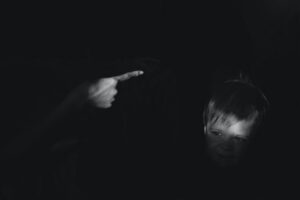From Shadowproof: “The theme concerning our nation being engaged in perpetual war as being related to our tolerance, or often even reverence for military violence, is a worthy one, as studies have shown a correlation between the two. But that still doesn’t get to the point of asking why ours is such a violent society, or even aside from the profitability of Incessant War, why so many of our ruling elites either love or don’t mind killing, and extol the virtues of torture and drone assassinations, as do far too many of our citizens.
Even as experts theorize that the glorified violence in movies, television programs and video games may play a part, few seem to ask what drives the desire to watch or play, even become immersed in those socially bankrupt genres? . . .
Poisonous Pedagogy
Polish Ph.D. and author Alice Miller (1923-2010) rejected her lengthy practice of Freudian analysis and spent the next decades of her life immersed in the childhood causes of psychopathic violence and cruelty later in life, as well as early experiential causes of simple neuroses and ‘personality disorders.’ There are others who’ve written extensively about Trauma models, but for the purposes of this post, I’ll use her body of work since it was so extensive and familiar to me. It happened that much of my life was spent in researching answers to questions she and many others wrote convincingly about, although many of their conclusions have been reviled and rejected as heresy against conventional psychiatry. She understood the great backlash against her conclusions and activism well, and grasped that only those who reflected on their own childhoods honestly could hope to embrace them. It’s Miller’s belief that most all psychiatric models fail mightily in [that they reject] childhood treatment as the key to later mental health status and interpersonal relationships, which has allowed parental and institutional cruelty to flourish for far too long.
Essentially, she believed that when children were either neglected, abused physically and/or emotionally, and reared in accordance with a ‘might makes right’ authoritarianism, they weren’t able to build authentic selves, the natural ones [were] instead stifled, preventing the victimized children giving voice to their emotions, personal truths and creativity. She described how personally empowering the simplest loving kindness is, and how toxic the long-term effects of withholding it, or worse, being ruled by punishment, rather than simple discipline, meaning teaching…or learned personal developmental accountability…is.
She describes the various voices we often hear in our heads, chiding us, disempowering us, creating shame or guilt reflexively, based on nothing more than negative imprints, rather than negative deeds, which some religions call sins. Her belief was that one of the most toxic dictates of religion was the ‘honor thy father and thy mother,’ and by extension, all adults’, rules, rather than the opposite: ‘Honor thy children, for they will inherit the world, and must needs be ready to be able to perceive truth, behave lovingly, with dignity, act cooperatively for all, and to be creative and honest in their communications with others.’ Or something like that. ;o)
At the further end of childhood abuse is the dislocating and often ruinous practice of hurting children, sexually abusing them, or creating such fear in them that their bodies, brains, and even cells…record and remember the abuse, and become central to their perceptions of others and their social interactions . . . Author Ron Kurtz, from whom I took classes and had personal sessions, explained in both The Body Reveals and his Hakomi Therapy manuals that our bodies respond to negative influences by tightening muscles in certain areas to desensitize us from emotional pain. The body doesn’t lie. An easy example would be if a toddler reached toward his/her caregiver for help, food, anything, and were regularly smacked for it…that child would begin to build tensions around its heart area to protect it; another might ‘armor’ its solar plexus to dull constant fear, etc. Great emotional burdens unresolved can lead to hunched shoulders (kyphosis), a fear-driven bully might stand with elbows cocked, ready to ‘draw on’ the next person he/she meets.
Of course there are varying degrees of silencing or manipulating children to bend their wills through coercion and deception, but she and her mentor Katharina Rutschky named both the individual and institutionalized practices poisonous pedagogy. She explains that since children are pretty much hard-wired to love their parents, they tend to internalize abuse or neglect as their own fault, and repress their anger, hurt and indignity where unless one day let out into the light of day, it brews more poisons that will one day be heaped on others, as in bullying, coercion, revenge, and violence, either latent or actual, and/or turned inward, creating depression, shame and guilt, most of which stays buried and unrecognized (repressed), ‘poisonous perpetrators and voices,’ unidentified.
Miller . . . guesses that since most psychiatric therapeutic models are based on blaming us as victims, and hastening ‘forgiveness,’ far too many of us will be, and are, taking medications to alleviate the symptoms of toxic parenting and institutional authoritarianism, rather than being willing to do the hard work of remembering what we were encouraged to forget.”

***
Back to Around the Web











